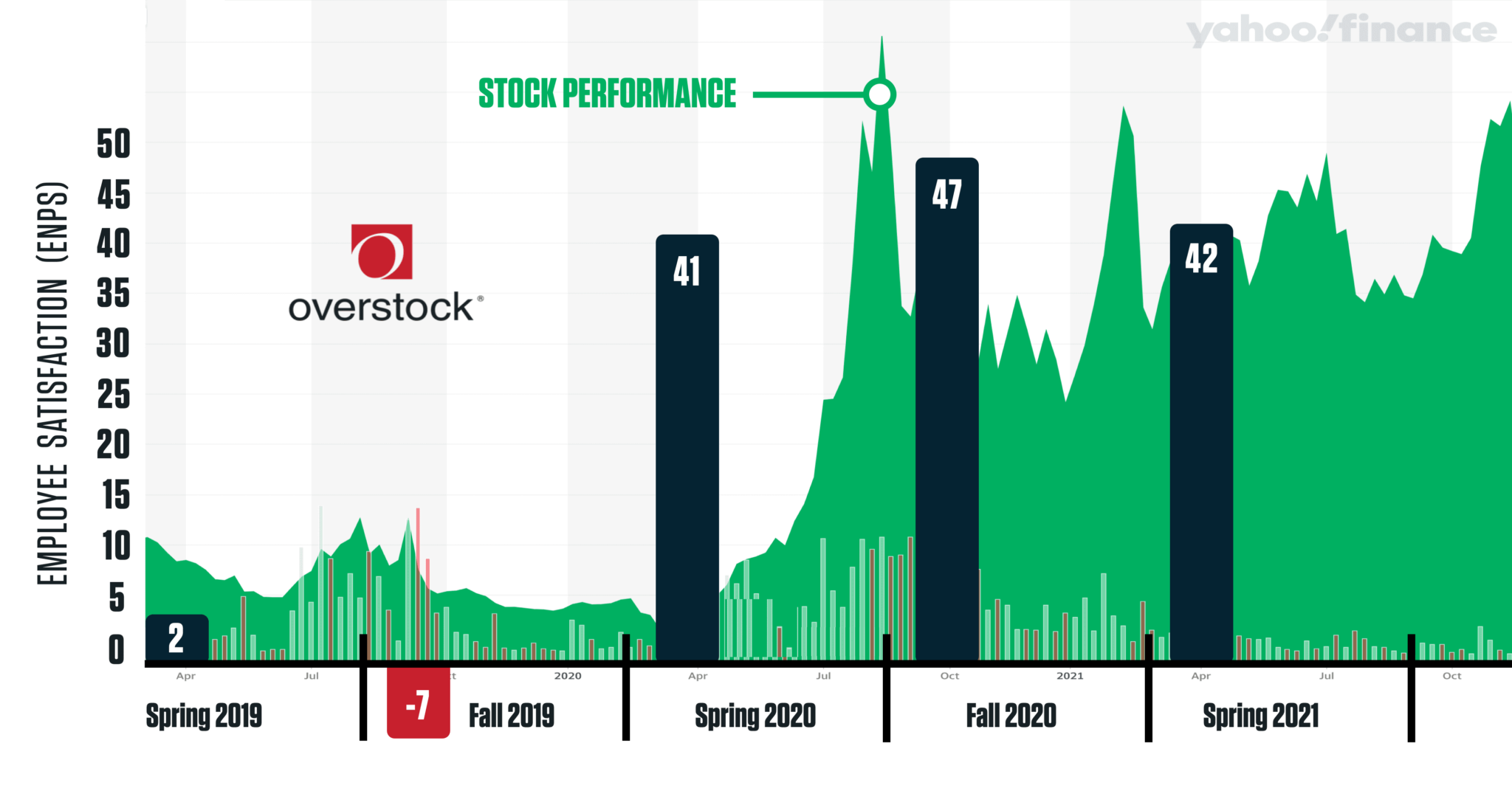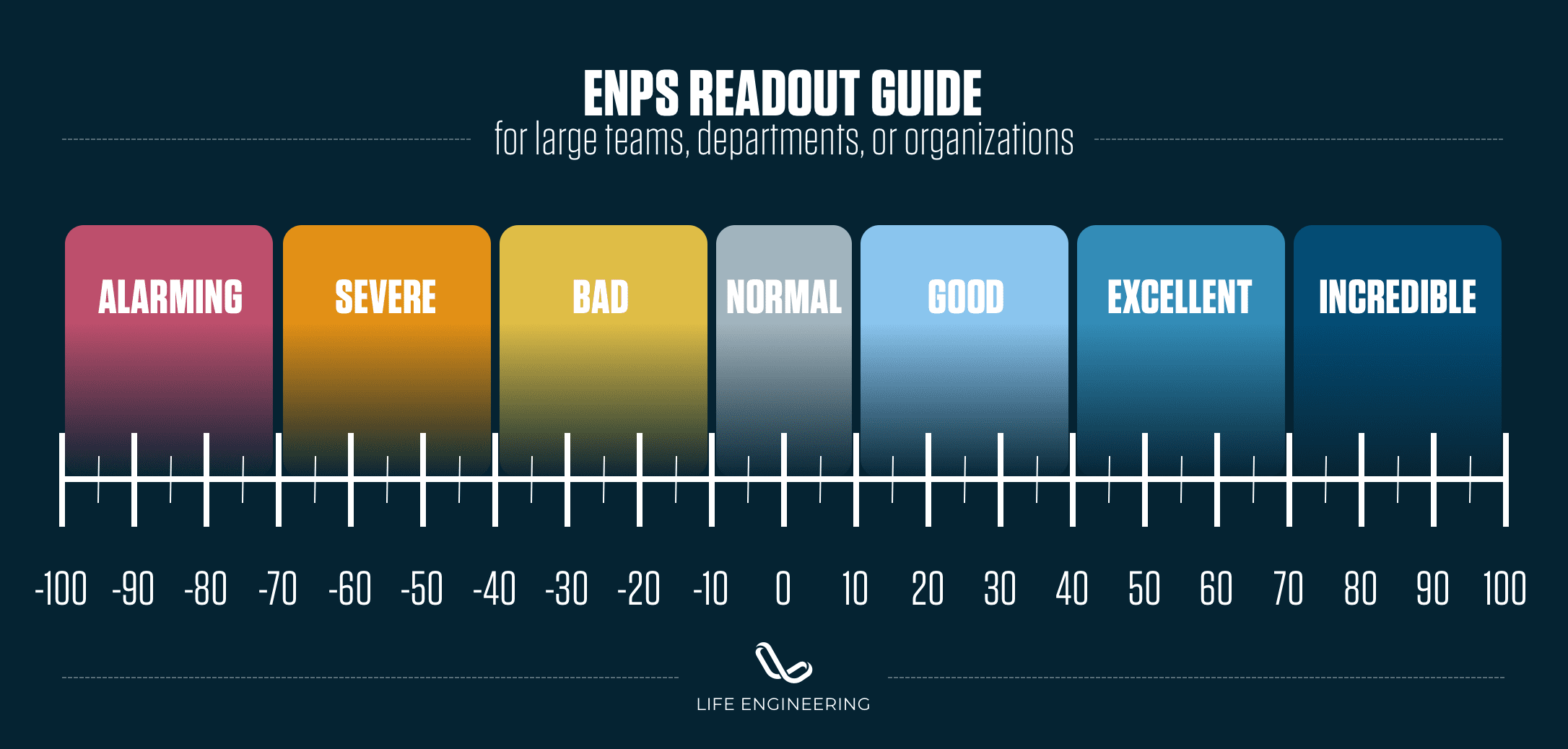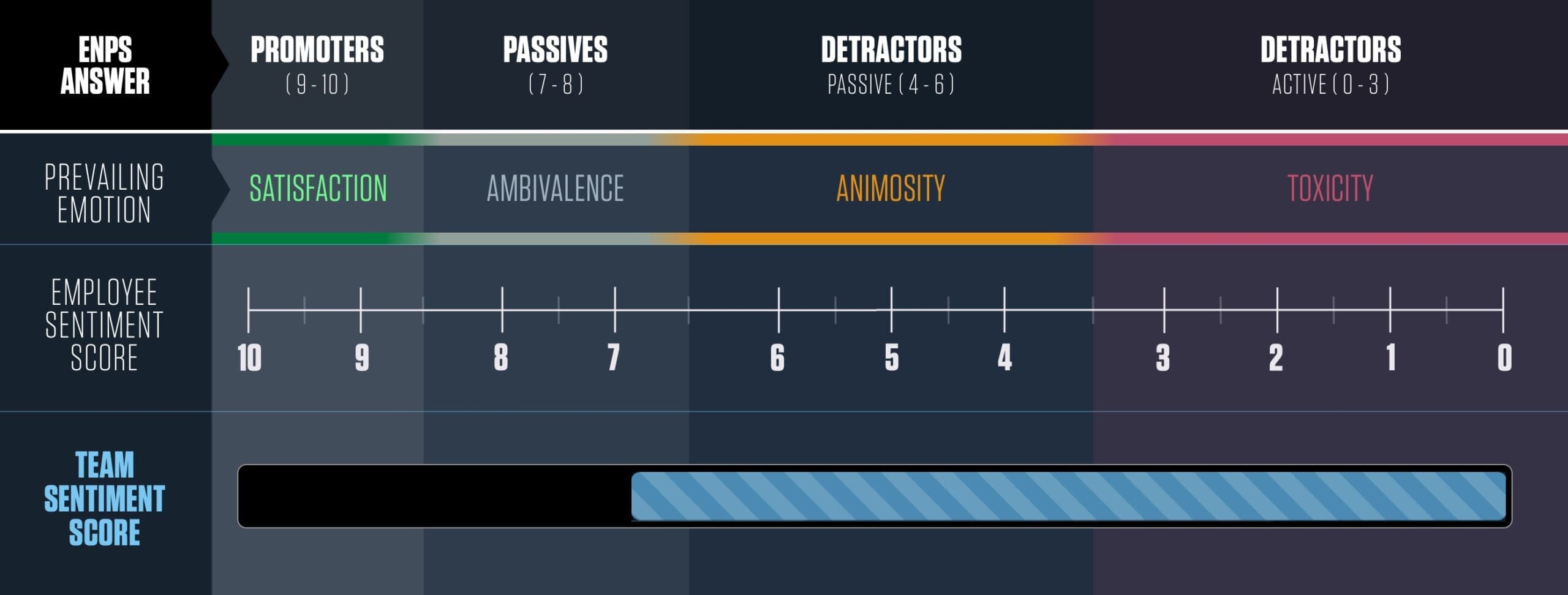create a highly-engaged
high-performing culture
running a business
or a high-performing team
is harder now than it's ever been.
This is the most ferocious economic battleground in history. For a leader or a business to succeed at a time like this, you have to solve for so many variables.
Chief among those variables: your people. They’re the lifeblood of your organization. But they’re also the most challenging variable to solve for, and it’s only getting harder.
There’s never been a time when the people part of the business has been as difficult, as complex, as textured and as nuanced as it is right now.
On top of all drivers of people complexity, we’re experiencing an epidemic of disengagement.
People are quiet-quitting in record numbers. They’re disengaged at work and often in life. It’s become one of the defining characteristics of this generation.
The World Health Organization has declared disengagement an official occupational phenomenon we need to solve for!
It’s probably costing you a fortune. We can help.
highly engaged, high-performing workforce.
employee satisfaction & engagement
to create a highly engaged,
high-performing culture.
Select a solution below, or scroll to learn more about the problem
4 key findings
you NEED to know
business performance is built on people performance
We now recognize that businesses don’t create value, people do. They’re the lifeblood of your teams and organizations. So if you want to increase business value, you have to focus on people value. You must develop the capacity to turn human potential into human performance.
But we live today amidst massive waste of human potential because so many people are disengaged. They’re disengaged at work, and they’re disengaged in life. We can help you solve employee disengagement to maximize the human potential already inside your organization.
When it comes to people performance, energy matters most
When it comes to improving people performance, there there are really only three variables… there’s time, there’s talent, and there’s energy. And of the three, the research is clear, energy matters most.
It’s the energy we have for the things we do that has the greatest long-term impact on how we perform. This is the energy that comes from engagement… from being emotionally connected to what you do.
Your ability to activate the energy lying latent in your organization represents the single biggest thing you can do to radically transform what your team or organization is capable of.
This is emotional capital, and it’s the most important capital we have available. The question is, what are you doing to actively measure and manage the emotional capital inside your organization?
Employee sentiment drives customer & market performance
Improving Employee Engagement and Satisfaction is not only how you unleash the energy lying latent in your organization to fuel team and organizational performance, there’s something else happening here.
There’s a correlation between how your employees feel about you and how your customers feel about you. If your employees are satisfied, the research shows your customers are more likely to be satisfied as well!
What’s more, there’s a proven correlation between employee sentiment (employee satisfaction and engagement) and how well you perform in the market.
So by investing in the ability to measure and manage employee satisfaction and engagement, not only does that lead to higher employee performance, it also leads to more satisfied customers and stronger market performance.
there's a connection between employee sentiment and
customer sentiment
There was a three-year study in The Journal of Occupational and Organizational Psychology that measured the correlation between employee sentiment (how your employees feel about you) and customer sentiment (how your customers feel about you). The results were nothing short of astounding.


The results are clear… how your employees feel about you is likely to represent how your customers feel about you. That means if your employees become dissatisfied and disengaged, then that sentiment is likely to bleed down to your customers, and impact your bottom line.
More research
Glassdoor found that for each one-star improvement in a companies’ employee ratings, their American Customer Satisfaction Index (ACSI) scores go up 1.3 points.
more research
Forbes and Salesforce found that companies focus on both customer and employee experience see their revenues grow almost twice as fast as the others.
there's a connection between employee sentiment and
MARKET PERFORMANCE
Additional evidence of the correlation between employee sentiment (satisfaction and engagement) and market performance can be found using the example of Overstock, a Utah-based online retailer. As you can see from the chart below, Overstock was tracking low on their Employee Satisfaction metrics through the fall of 2019. That was when, according to the CEO speaking at a local event in 2021, they decided to go all-in on solving for culture through customer satisfaction and engagement.
As you can see, their efforts paid off, resulting in a huge increase in their next employee satisfaction (ENPS) survey.
What’s especially interesting is when you look at their share performance over that same period of time you see a very profound, and only slightly delayed, correlation between how their employees felt about the organization, and how investors and shareholders felt about the organization, and how it performed in the market.

Most of your employees are probably disengaged
Scroll for more
understanding the reality of
employee disengagement
2021 brought us
the great resignation
with more people exiting the workforce than ever before.
Over the past couple of years, we’ve faced a massive talent deficit. We struggled to find the people we need to do the work that needs to be done… and then they all started to quit! They quit in such numbers that 2021 become known as “The Great Resignation,” where employees (often without notice), would just quit and leave.
We all thought it couldn’t get worse.
then 2022 brought us
quiet quitting
where they don't quit and leave, they quit and stay
Over time, employees realized that when they became dissatisfied or disengaged at work they didn’t need to quit and leave… instead they could just quit and stay, and still collect their full paycheck.
Quiet quitting is where an employee loses all emotional drive at work. They stop caring about the company they’re in, or the team they’re on, or the work they do, or the customers they serve, or the difference they make.
They fly just under the radar, doing the bare minimum.
But Quiet Quitting isn’t new. It’s just a new name on a very old problem, called employee disengagement. And the research shows it’s getting worse… much worse.
It’s so bad, in fact, that the World Health Organization has declared it “An Official Occupational Phenomenon” that organizations have got to start thinking about.
disengAGEMENT
DID YOU KNOW THAT UP TO
79%
of workers are disengaged
Gallup, 2022
the cost
to an organization is extraordinary
it's expensive
According to Gallup, a disengaged employee can cost the company around 34% of their annual salary. Plus, they have:
37% higher absenteeism
18% lower productivity
15% lower profitability
really expensive
That means that if you have 250 employees with an average salary of $47k, employee disengagement costs you over $3 million dollars annually.
– Forbes
then there's the opportunity cost
some research shows that a
disengaged
employee only delivers about
20%
of their total performance
capacity!
how much does it
cost you?
Imagine, on top of the hard costs, if almost 80% of your employees were doing 20% of the work they were capable of.
Maybe you’re a “better than average” team or organization. But even if you’re fully twice as good as the average…
That’s still almost 40% of your employees doing only a fraction of the work they’re capable of. The costs are staggering.
Gallup research shows that employee disengagement is a $1.2 TRILLION dollar problem in the U.S. alone.
considering all this
there's only one real question that remains...
what are you doing
to measure and manage
employee satisfaction
and employee engagement?
life engineering
employee engagement solutions
highly engaged, high-performing workforce.
employee satisfaction & engagement
to create a highly engaged,
high-performing culture.
Select a solution to learn more
ground-breaking SCIENCE
We hired a dedicated team of scientists and invested millions of dollars to do the deep research into employee satisfaction, employee engagement, and sentiment to truly understand the science of engagement at a time when it matters most.
cutting-edge DIAGNOSTICs
Based on that science, we developed a proprietary suite of diagnostic assessments and sentiment processing algorithms that can identify both the extent and the cause of employee disengagement!
learn-anywhere online academies
We hired a world-class team of management consultants, leadership development experts, doctors and therapists to design a suite of processes, frameworks, methodologies and online learning curriculum to drive engagement.
anytime-access
We deliver these solutions through a simple to use, online membership system to help you create a highly satisfied, highly engaged, high-performing workforce. And it’s never been more important than right now.
measuring employee satisfaction
a lightweight, easy to use survey set!
Measuring employee satisfaction is incredibly simple. It starts by a single, industry-standard, two-question survey called ENPS (Employee Net Promoter Score).
This one survey give you both your ENPS score as well as a proprietary Employee Sentiment Score (ESS) that is exclusive to your Life Engineering Membership.
The value of a simple, single-survey design is that you get a huge amount of insight from a very simple questionnaire, with almost no significant time-burden on your organization.
These two reports work in concert with each other to give you accurate, easy-to-gather insight into employee satisfaction. Click on the reports below to learn more about them.

ENPS
(EMPLOYEE NET PROMOTER SCORE)

The Employee Net Promoter Score (otherwise called ENPS) is the industry standard way of measuring employee satisfaction. Click below to learn all about ENPS, how it’s measured, what it means, and how to run your own ENPS survey.

ESS
(EMPLOYEE SENTIMENT SCORE)

Employee Sentiment Score is an all-new, proprietary approach invented by the Life Engineering Science team that allows organizations to dive much deeper into the probable sentiments of employees using the same data gathered from your ENPS survey.
One thing is clear… businesses don’t create value, people do. So if you care about increasing organizational value, you need to care about increasing people value.
Aside from creating highly-satisfied, highly engaged employees, which gives them the energy to drive up the impact of their time and talent, the surest way to increase their value is to invest in developing that talent.
When leaders and employees have access to the right leadership and employee development resources, they are happier, healthier, and more productive.
your leadership and employee development
online academy
Included in your membership are a powerful and growing set of online learning resources that will help your leaders and employees thrive.
Employee Engagement describes the energy you have for the work you do, for the teams you’re on, for the customers you serve, and for the company you work for.
When your engagement is high, that energy drives up the impact of your time and talent, and leads to performance.
But when your energy for your work is low, your time and talent don’t produce the nearly the same results.
The ability to engage the employees you have is mission critical to both employee and organizational performance.
introducing your new
employee engagement toolkit
Science-based diagnostics connected to post-assessment learning resources allow you to optimize for employee engagement like never before.
engagement
is the greatest organizational challenge of this century
SOLVE FOR ENGAGEMENT
AND YOU'LL EXPERIENCE
-
BOOSTS IN PERFORMANCE & Productivity
Across employees, teams and departments
-
INCREASED EMPLOYEE SATISFACTION
Boosts to employee happiness and wellness
-
INCREASED CUSTOMER SATISFACTION
Happy employees produce happy customers
-
BETTER MARKET RESULTS
Happy employees & customers drive market results
-
INCREASED EMPLOYEE LIFETIME VALUE
More value over the length of their tenure
-
Shorter time-to-productivity
Employees get up and running more quickly
-
INCREASED TENURE
Happy, engaged employees create less turnover
-
Lower Costs
Costs of replacing employees can be redirected

